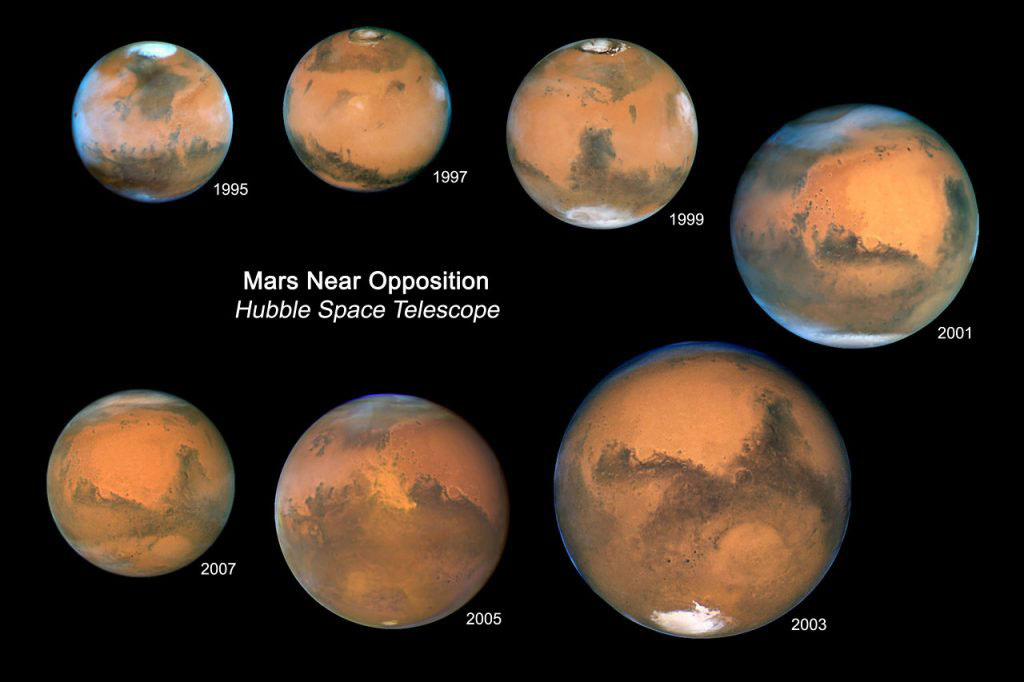
Mars will be closest to the Earth on July 31; It will be easily visible to naked eyes for whole June & July
Soon, stargazers and space enthusiasts will be able to have a glimpse of the red planet Mars with their naked eyes. In fact, in the coming six weeks in the month of June and July, Mars will shine brighter than ever compared to the last 15 years. The reason being its distance from the Earth as it will course to the closest point to the Earth since 2003. Earth is orbiting right between the red planet and the sun and Mars will be at its closest distance of over 35.8 million miles on July 31 from Earth and will be visible to naked eyes.
It will outshine other stars and celestial bodies in the coming weeks except for the brightest stars while it reaches closest to the Earth due to a phenomenon called perihelic opposition. The scientific term ‘opposition’ means that the sun, Earth, and Mars will be aligned in a straight line on this day. This phenomenon occurs every 26 months. Apart from the opposition, Mars will hit another milestone i.e. perihelion when it will course closest to the Sun within a distance of 35.8 million miles which occurs every 15 to 17 years when the orbits of Earth and Mars align and bring these planets together.
People will be able to spot the red planet with their naked eyes although stargazers can use telescopes and other equipment to get a good glimpse of the red planet that will illuminate brighter than others. But that’s about how we see Mars from our Earth because the conditions on this distant planet aren’t too good. A few days ago, Opportunity rover was shut down in order to combat the largest ever dust storm that has been walloping Mars covering an area of around 10 billion acres which is equivalent to covering an area the size of Russia and North America where the dust storm has engulfed a quarter of the Martian surface.
NASA has put its Opportunity rover in sleep mode to conserve energy but it remains doubtful whether the aging rover will continue working after the storm subsides which could take months from now. On the other hand, NASA’ Curiosity rover is presently in a safe spot where the effects of the storm haven’t been severe as of now.


